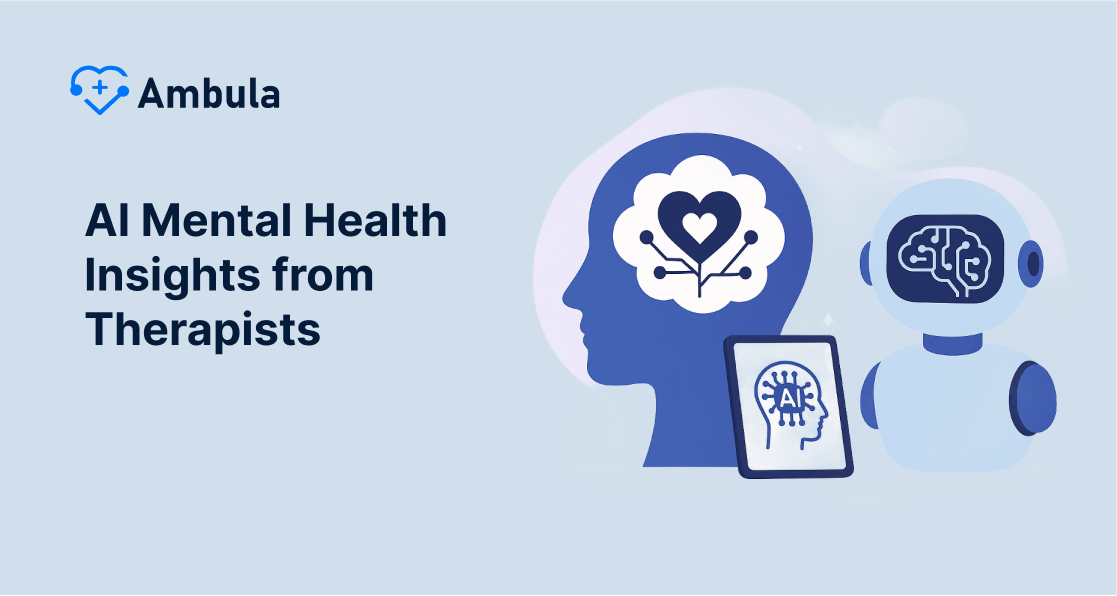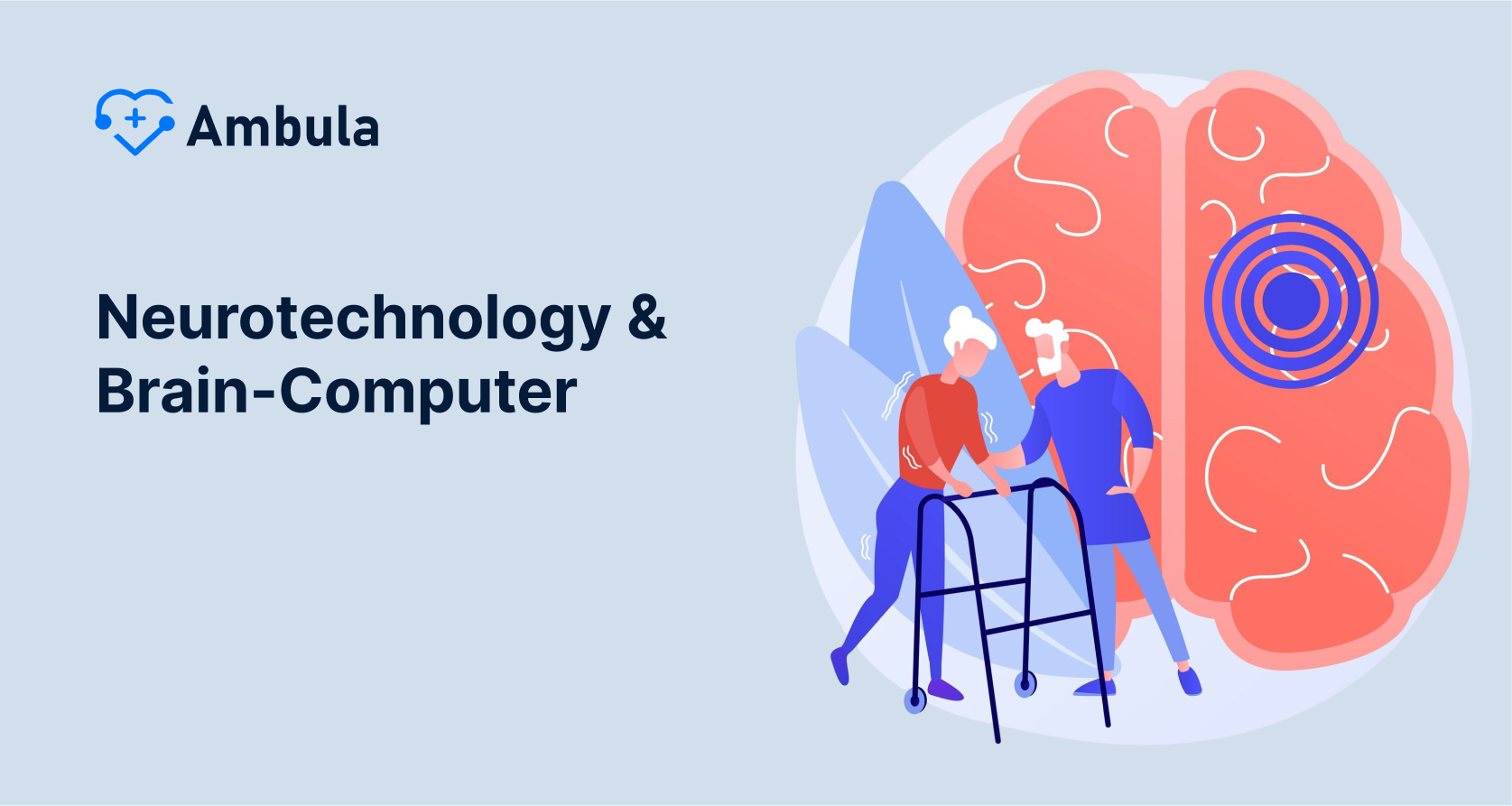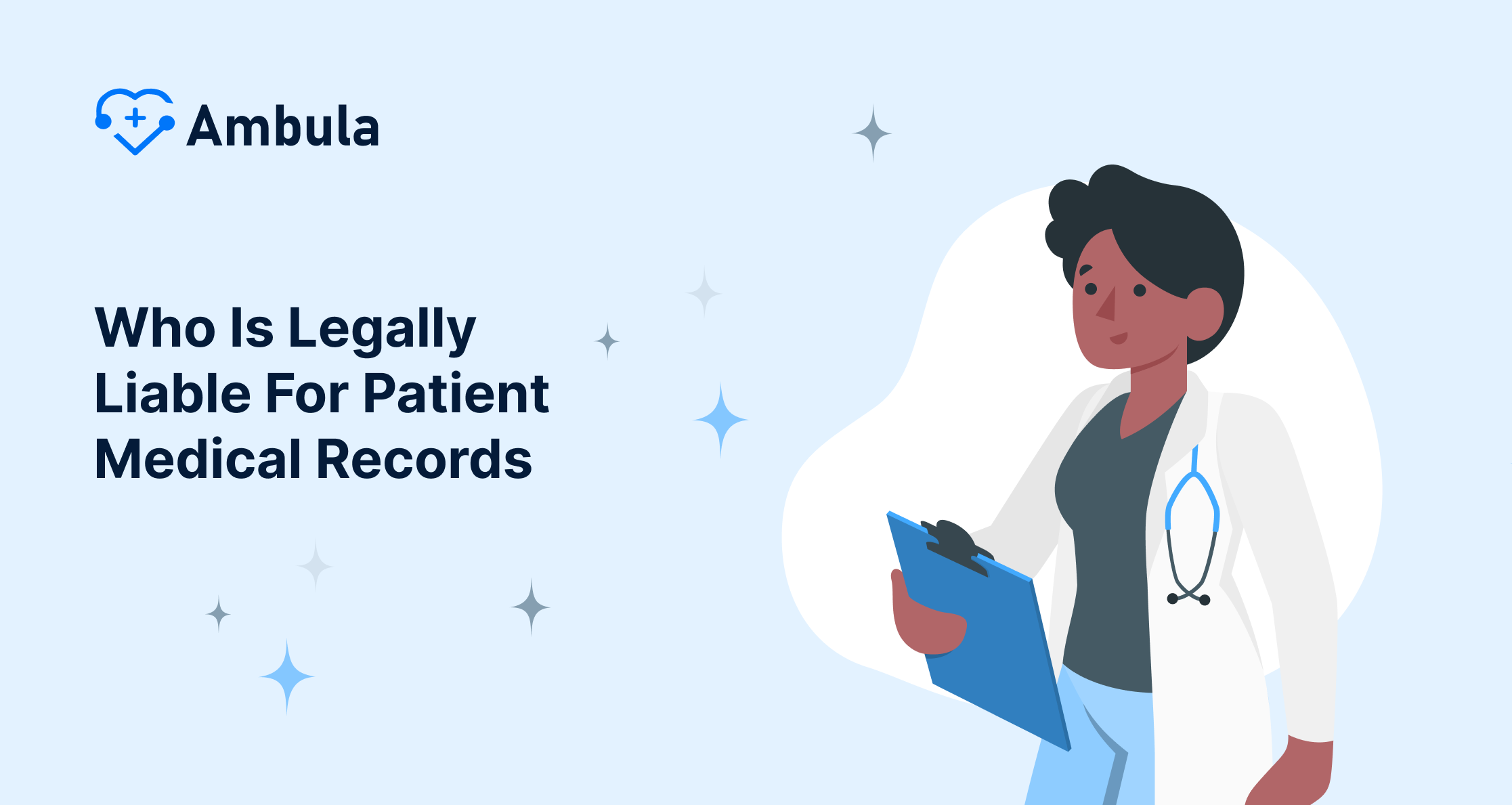Healthcare decision-making isn’t a sterile equation. It’s a nuanced dance between the rigorous guidelines of evidence-based medicine, the seasoned intuition of clinical experience, and the unique tapestry of each patient’s story.
While research and data form the foundation, they don’t capture the intricate details of an individual’s health journey. This is where seasoned healthcare professionals step in, drawing from their wealth of experience to tailor recommendations, even as they battle against potential biases and limited individual exposure.
But patients are more than just passive recipients of care. Their values, preferences, and pre-existing conditions must be woven into the decision-making fabric.
The healthcare landscape is evolving rapidly, and AI is at the forefront of this transformation. This article serves as your guide to understanding the transformative impact of AI on medical clinics. We’ll analyze the potential disruptions and opportunities, equipping you with strategic insights and actionable steps to adapt and thrive in the AI-powered future. Learn how to maximize the benefits of AI while mitigating potential risks, ensuring your clinic is well-positioned for success in the years to come.
Benefits of AI in Clinical Decision-Making
The human brain excels at complex reasoning, but processing mountains of medical data can be overwhelming. AI thrives here, effortlessly sifting through vast datasets of medical images, patient records, and research findings. This allows for identifying subtle patterns that might escape the human eye, like early tumor indicators on mammograms or hidden genetic predispositions within DNA sequences.
AI algorithms develop an uncanny ability to recognize complex patterns and correlations. They can detect minute deviations in medical images, like the faintest shadow on an X-ray that could signal lung cancer or subtle changes in blood test results indicative of early-stage kidney disease. This goes beyond identifying obvious abnormalities and uncovering crucial insights that might otherwise remain hidden.
The impact of AI on diagnostic accuracy is already evident in various fields. AI-powered systems are now assisting in diagnosing cancers, predicting heart disease risks, and even identifying rare genetic disorders. As AI continues to evolve and data sets grow, its potential to improve diagnostic accuracy becomes boundless.
AI’s Personalized Touch in Medicine
Traditional treatment recommendations often rely on population averages, which can paint an incomplete picture. AI, however, delves deeper, analyzing a wealth of individual data points. This includes medical history, genetic makeup, lifestyle choices, and even environmental factors. By considering these unique aspects, AI can generate insights that go beyond the “average” patient, leading to more personalized and potentially more effective treatment strategies.
With advancements in genomics, AI can now analyze a patient’s genetic makeup to identify specific markers linked to diseases and drug responses. This personalized approach allows for tailoring medications and dosages to individual needs, minimizing potential side effects and maximizing therapeutic benefits. Imagine identifying the most effective cancer treatment based on a patient’s unique genetic profile, a reality closer than ever with AI-powered analysis.
AI continuously learns and evolves, analyzing vast databases of patient responses to various treatments. This allows it to predict how an individual patient might react to specific medications or therapies, offering valuable insights to healthcare professionals. By factoring in this predictive power, doctors can create more informed treatment plans, potentially avoiding ineffective medications and optimizing therapy success.
Challenges and Ethical Considerations
While AI’s potential in healthcare is undeniable, navigating its implementation requires careful consideration of ethical and practical challenges. Here are some key aspects to consider:
Data Privacy and Security: Clinical data is intensely personal and sensitive. Sharing and utilizing it for AI development raises concerns about data privacy and security breaches. Stringent measures like anonymization, robust encryption, and clear patient consent are crucial to ensure data is protected and used responsibly.
Algorithmic Bias and Fairness: AI algorithms are trained on data, and if that data reflects existing biases, it can lead to discriminatory outcomes. For example, an AI system trained on predominantly white patients might misdiagnose black patients. Addressing algorithmic bias requires diverse datasets, transparent model development, and regular auditing to ensure fairness and inclusivity.
Black Box Issue and Trust: Many AI models function as “black boxes,” where the reasoning behind their recommendations remains opaque. This lack of interpretability can hinder trust in their suggestions. Healthcare professionals need to understand how AI arrives at its conclusions to critically evaluate its recommendations and ensure alignment with their clinical judgment.
Transparency and Explainability: To build trust and address bias, AI models need to be more transparent and explainable. This means developing tools that can explain how the AI reached a specific conclusion, allowing healthcare professionals to understand the logic behind its recommendations and make informed decisions.
Regulation and Governance: As AI continues to evolve in healthcare, robust regulatory frameworks are needed to ensure its responsible and ethical development and implementation. This requires collaboration between policymakers, healthcare professionals, AI developers, and patients to establish clear guidelines for data privacy, algorithm fairness, and responsible use of AI in clinical decision-making.
Addressing these challenges is crucial to unlocking the full potential of AI in healthcare. By prioritizing ethical considerations, ensuring transparency and fairness, and fostering collaboration between various stakeholders, we can pave the way for a future where AI augments medical expertise, improves patient outcomes, and creates a more equitable healthcare system for all.
Potential Job Displacement in Healthcare
The integration of AI into clinical decision-making raises concerns about potential job displacement in the healthcare workforce. While some positions may face disruption, it’s crucial to view this transition as an opportunity for evolution, not elimination. Here’s a nuanced look at the potential impact:
Jobs with repetitive, data-driven tasks, like medical coding, administrative duties, or preliminary diagnoses using established guidelines, might be more susceptible to automation through AI.
However, fearing total replacement overlooks the bigger picture. AI is unlikely to replace the complex clinical judgment, empathy, and human touch essential in healthcare. Instead, it can transform roles, freeing up valuable time for healthcare professionals to focus on tasks requiring their unique skills and experience.
Upskilling and Redeployment: The evolving landscape necessitates upskilling and reskilling initiatives. Healthcare professionals can learn to collaborate effectively with AI, interpret its recommendations, and adapt their skillsets to new roles utilizing their existing knowledge and experience.
A Glimpse into the Future
The healthcare landscape is undergoing a metamorphosis driven by a powerful engine: Artificial Intelligence (AI). While its current impact is evident, the future unfolds like a thrilling story, brimming with emerging trends and advancements ready to reshape our understanding of care.
Imagine a world where diagnosis transcends mere reaction. AI, armed with its analytical prowess, delves into vast datasets, uncovering hidden patterns that predict diseases before they manifest. This isn’t science fiction; it’s the dawn of proactive and predictive medicine, empowering early intervention and potentially saving lives.
But AI’s influence doesn’t stop there. The realm of personalized medicine is about to be amplified. Imagine treatments crafted not for the masses but for the individual. AI, weaving together a patient’s unique genetic tapestry, lifestyle threads, and medical history, designs ultra-personalized treatment plans, maximizing effectiveness while minimizing side effects. This revolution in precision medicine promises a future where care truly caters to the individual.
Even the surgeon’s scalpel might soon share the spotlight with AI-powered robots. Imagine robotic surgeons, with unparalleled precision and minimal invasiveness, assisting in delicate procedures, even venturing into autonomous surgeries under human supervision. This robotic revolution could increase access to specialized care and potentially reduce surgical risks, painting a brighter picture for patients requiring complex interventions.
Case Studies
While the future of AI in healthcare holds immense promise, its impact isn’t just a vision on the horizon; it’s already taking root in real-world clinical settings, delivering tangible benefits for patients and healthcare professionals alike. Here are a few shining examples:
Diagnosing with Superhuman Accuracy:
- Early Cancer Detection: In China, an AI system successfully identified early-stage lung cancer nodules on chest CT scans with 94% accuracy, exceeding the performance of human radiologists. This early detection could prove lifesaving for countless patients.
- Stroke Prediction: In the US, an AI algorithm analyzed brain scans and medical records, predicting potential strokes with 70% accuracy a week in advance. This allows for proactive intervention and potentially reduces stroke severity.
These are just a few examples, and the landscape of successful AI implementations is constantly expanding. From automating administrative tasks to analyzing medical images with superhuman accuracy, AI is proving its value in diverse areas of healthcare. As ethical considerations are addressed and responsible development continues, the future holds even more exciting possibilities for AI to transform healthcare delivery and improve patient outcomes on a global scale.
Conclusion
AI’s true strength lies in its ability to analyze vast datasets and complex medical images with superhuman accuracy. This opens doors to earlier and more precise diagnoses, potentially saving lives by identifying diseases like cancer at their earliest stages. Imagine a world where tumors are detected not when symptoms arise but before they even manifest.
The one-size-fits-all approach to healthcare is fading as AI paves the way for personalized medicine. By analyzing individual patient data, including genetic makeup, lifestyle choices, and medical history, AI can craft treatment plans tailored to their unique needs. This translates to potentially more effective treatments with fewer side effects, offering a future where care truly caters to the individual.




